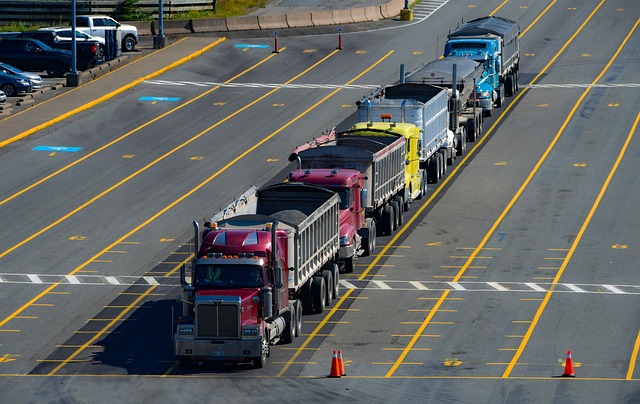New trucking operations must prioritize comprehensive trucking insurance to navigate industry risks, covering physical damage, accidents, driver fatigue, and cargo loss. This includes tailored liability, cargo protection, dispatch assistance, and natural disaster coverages. Customizing policies by communicating unique operational risks leads to robust coverage, peace of mind, and regulatory compliance. Proactive safety measures, like driver training, advanced technology, and maintenance procedures, alongside adequate insurance, mitigate claims and enhance operational safety.
Starting a new trucking operation comes with unique challenges, from managing unpredictable road risks to ensuring compliance with stringent regulations. This article guides you through the essential aspects of insuring your new venture, focusing on comprehensive trucking insurance. We explore the distinct risks inherent in the industry, key policy components, strategies for customizing coverage as a newcomer, and tactics to minimize claims and fortify operational safety.
Understanding the Unique Risks of Trucking Operations
Trucking operations present a unique set of risks that go beyond traditional business challenges. One of the primary concerns is the high potential for physical damage and accidents, given the size and weight of trucks and their frequent interaction with other vehicles on the road. These incidents can lead to significant financial losses due to repairs, legal liabilities, and downtime. Moreover, trucking companies often operate in diverse environments, from harsh weather conditions to long-haul routes, which increase the risk of mechanical failures and driver fatigue.
Comprehensive trucking insurance is designed to address these unique risks by providing protection against a wide range of potential losses. It typically covers not just physical damage and liability but also cargo loss or damage, driver injuries, and even business interruption due to unforeseen events. Understanding these risks and the scope of comprehensive trucking insurance is essential for new operations looking to mitigate potential financial setbacks and ensure smooth, secure transportation services.
Essential Components of Comprehensive Trucking Insurance
When insuring a new trucking operation, it’s paramount to secure comprehensive trucking insurance that caters to the unique risks inherent in the industry. This type of insurance goes beyond basic coverage to protect against a wide range of potential liabilities and losses. Essential components include liability coverage for damages caused to others or their property during transit, as well as physical damage to your vehicles.
Additionally, comprehensive trucking insurance should include specific endorsements for cargo protection, covering loss or damage to the goods you transport. It’s also crucial to have dispatch and roadside assistance coverage in place for unexpected breakdowns or emergencies. Further, consider insurance that covers against theft, vandalism, and natural disasters, which can significantly impact trucking operations.
Navigating Policy Options and Customization for New Businesses

Starting a new trucking operation comes with its own set of complexities, especially when it comes to insurance. Navigating the vast array of policy options available can be daunting for any business owner. However, this process is crucial in ensuring comprehensive trucking insurance that adequately protects your assets and meets regulatory requirements.
Customizing your insurance policy is a key aspect of this journey. As a new business, your specific needs might differ from established companies. Discuss potential risks unique to your operation—from vehicle maintenance and driver safety to cargo security and environmental liabilities. This dialogue will help underwrite the best coverage, offering peace of mind and financial protection tailored to your trucking enterprise’s specifics.
Strategies to Mitigate Claims and Enhance Operational Safety

To mitigate claims and enhance operational safety in a new trucking operation, several proactive strategies can be implemented alongside a robust comprehensive trucking insurance policy. Regular driver training and education on safety protocols are key; this includes courses on defensive driving, load securement, and hazard recognition. Investing in advanced technology like telematics and camera systems can also improve safety by providing real-time monitoring and data for risk assessment.
Additionally, establishing clear maintenance procedures and regular vehicle checkups can prevent accidents caused by mechanical failures. Maintaining detailed records of inspections, repairs, and driver performance allows for trend identification and targeted improvements. Fostering a culture of safety where drivers are encouraged to report concerns or near-misses can further strengthen the operation’s safety posture. These measures, coupled with appropriate comprehensive trucking insurance coverage, create a robust safety net for the trucking business.
Starting a new trucking operation comes with distinct challenges, but understanding and mitigating these risks through tailored comprehensive trucking insurance is key. By embracing essential coverage components and implementing strategies to enhance safety and reduce claims, new businesses can navigate the industry’s unique hurdles effectively. This proactive approach ensures operational resilience and fosters long-term success in an ever-competitive trucking landscape.
